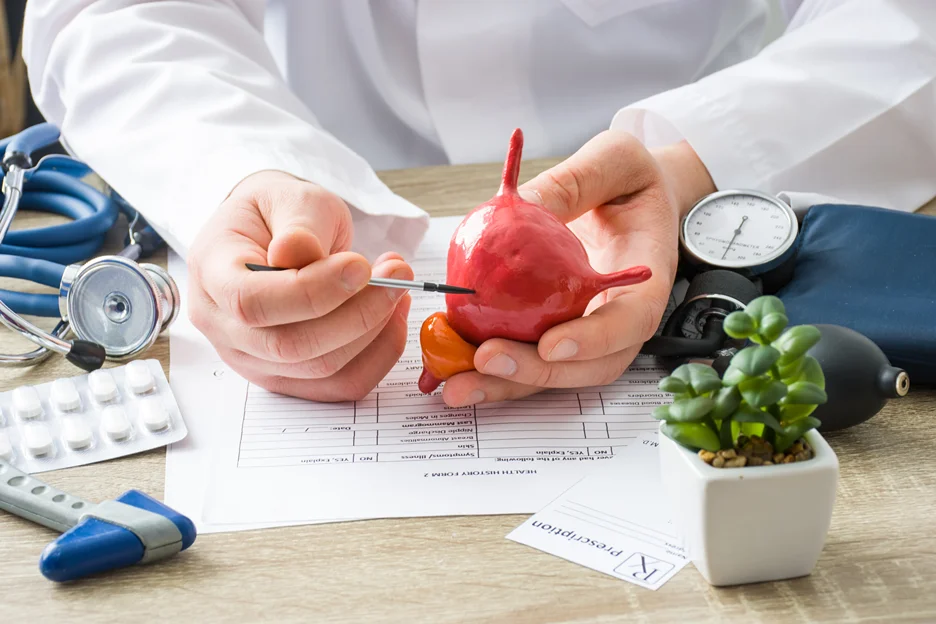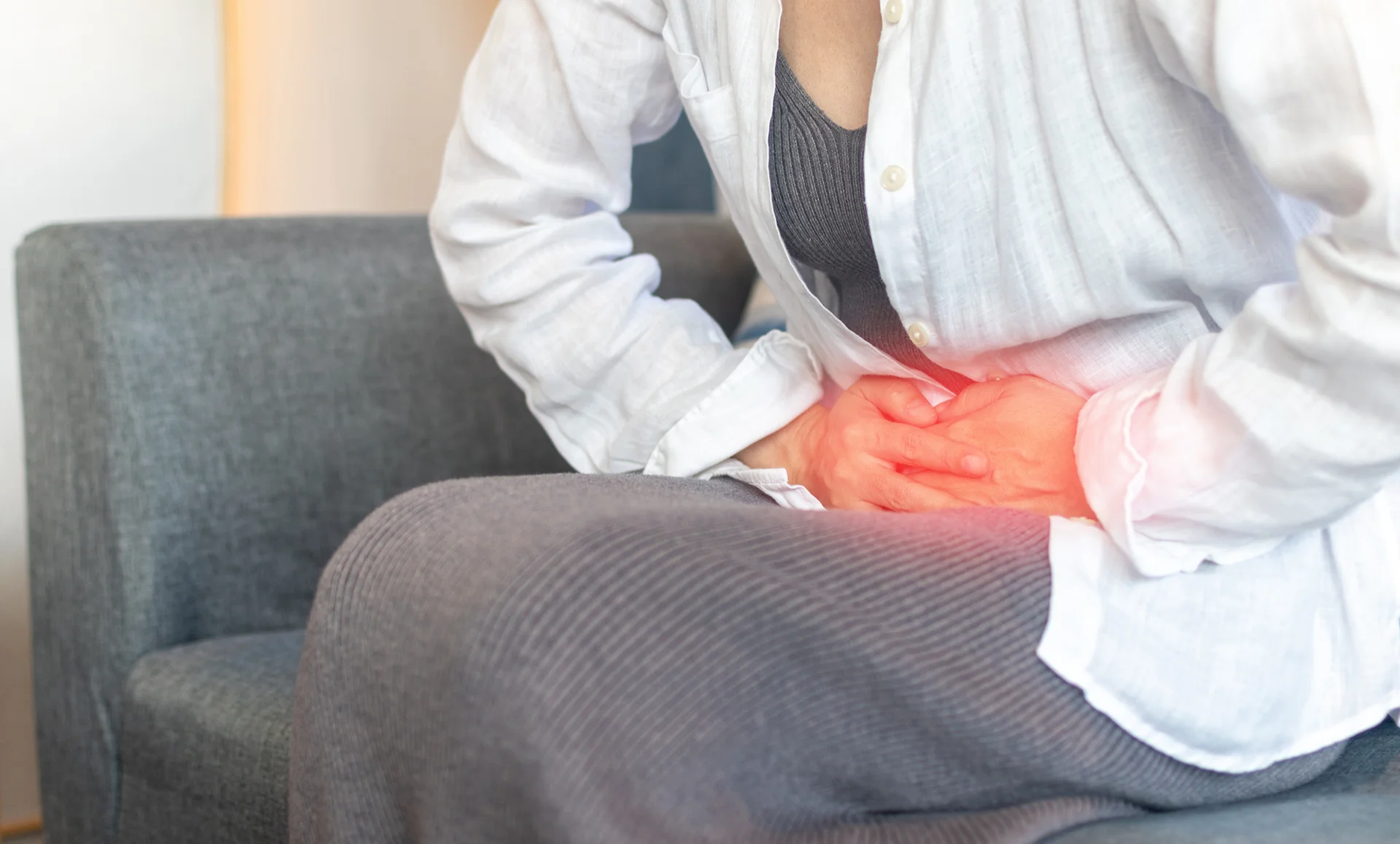How DAO Enzyme Supplementation Could Help Manage Interstitial Cystitis Symptoms
Millions of women in United States struggle with interstitial cytitis (IC) every day, seeking relief through medication, lifestyle changes, and other treatments. But what if there is an enzyme that could alleviate the symptoms and improve quality of life?
DAO, an enzyme that’s key in breaking down histamine in our bodies, may hold promise for IC patients. Recent studies have suggested that a lack of this enzyme could contribute to various health issues, including IC.
In this article, we’ll explore the science behind the DAO enzyme and its potential benefits for IC sufferers. Prepare to explore a new method for managing your condition. It’s an approach that could offer lasting relief and a fresh dose of hope.
What is Interstitial Cystitis
Interstitial Cystitis, also known as Bladder Pain Syndrome, is a chronic condition that affects the bladder and surrounding tissues. It’s characterized by pelvic pain, urinary urgency, and frequency. While its exact cause remains unknown, it’s thought to be triggered by various factors. This condition can be difficult to diagnose and treat, which is why understanding the role of histamine and DAO enzyme is crucial in managing interstitial cystitis.
Symptoms of IC
CI can cause a range of symptoms which can affect a person physically, emotionally, and psychologically. These include:
Pelvic pain
Patients suffering from IC may feel a constant, nagging pain in the pelvic area, vulva, or lower abdomen that can last for long periods of time, commonly known as chronic pelvic pain. The pain can also occur intermittently when the bladder is full or when urinating.
Frequent urination
Patients also reported having a persistent, urgent need to urinate, even when the bladder is not full. In some cases, you may need to use the bathroom as frequently as every ten minutes.
Painful sexual intercourse
Women may experience discomfort and pain during sexual activity. This can have damaging effects on intimacy, relationships, and self-esteem.
Other possible symptoms include:
- Bladder pressure
- Discomfort
- Feeling of fullness
DAO Enzyme and Its Role in Interstitial Cystitis
Histamine, a mediator in the immune system, plays a part in several bodily functions, such as stomach acid synthesis, blood vessel dilation, and smooth muscle contraction. Patients with IC that experience bladder pain syndrome, frequent urination, and pelvic pain can have aggravated symptoms due to histamine intolerance. Elevated levels of histamine can lead to symptoms such as nasal congestion, headaches, hives, rashes, and abdominal pain. In the case of IC, high histamine levels can exacerbate symptoms such as bladder pain, frequent urination, and other related symptoms.
Histamine Levels
IC patients experiencing bladder pain syndrome, frequent urination, and pelvic pain can see their symptoms worsen due to histamine intolerance. Elevated histamine levels can cause mast cell activation, resulting in inflammation and pain in the bladder and pelvic region.
The DAO enzyme plays a crucial role in breaking down histamine in the gut. The production of histamine takes place in the gut, and if it is not broken down efficiently, it can lead to histamine intolerance and exacerbate Interstitial Cystitis symptoms.
It is essential to maintain good gut health by promoting the growth of healthy gut bacteria, avoiding histamine foods, and seeking treatment for histamine issues such as DAO enzyme supplements to help break down histamine and alleviate symptoms in patients with IC.
Other Possible Causes of IC
In addition to histamine intolerance, there are several other possible causes of IC. Certain factors have been linked to the development and exacerbation of IC symptoms which include:
Genetic predisposition. Studies have shown that certain genetic markers may increase the risk of developing IC or may make individuals more susceptible to certain triggers that can exacerbate symptoms.
Autoimmune diseases. Conditions like lupus, multiple sclerosis, and Sjogren’s syndrome have been linked to a higher risk of developing Interstitial Cystitis.
Pelvic floor dysfunction. Weakness or tension in the muscles of the pelvic floor can lead to urinary dysfunction and cystitis pain, which are common symptoms of IC.
Hormonal imbalances. Changes in estrogen levels during the menstrual cycle might impact the bladder and urinary system, resulting in an increased need to urinate more frequently.
Dietary triggers. Some individuals may experience severe symptoms due to certain foods and drinks such as spicy or acidic foods, caffeine, and alcohol. Exposure to environmental toxins and pollutants may also contribute to the development of IC.
Treatments for IC Related to Low DAO Activity

To treat IC related to low DAO activity, there are different options available. These include:
Dietary changes
High-histamine foods such as aged cheeses, fermented beverages, and canned fish should be avoided. Other foods that release histamine, such as citrus fruits, tomatoes, and chocolates, also need to be limited. A low-histamine diet can help reduce histamine levels in the body, relieving IC symptoms.
DAO enzyme supplements
DAO breaks down histamine present in the body, and taking DAO enzyme capsules can alleviate symptoms such as bladder pain syndrome, pelvic pain, and frequent urination. It is crucial to seek advice from a healthcare professional before taking supplements, especially if you have underlying medical conditions. Consult with one of our professionals today.
Medications such as H1 and H2-receptor blockers
These medications block the effects of histamine in the body, reducing IC symptoms. Proton-pump inhibitors can also be used to suppress stomach acid production, which may contribute to IC symptoms.
Optimizing probiotics and maintaining a healthy gut
A balanced diet including prebiotic and probiotic-rich foods such as yogurt, kefir, and sauerkraut can support a healthy gut microbiome, which in turn supports proper DAO enzyme production.
Other Complications Associated with Interstitial Cystitis
While the main symptoms of Interstitial Cystitis pertain to the bladder and urinary tract, the condition can lead to several possible complications.
| Complication | Symptoms |
| Sleep disorders | Difficulty getting a good night’s sleep, frequent waking during the night, daytime exhaustion, fatigue, and irritability. |
| Depression and anxiety | Feelings of sadness, hopelessness, and anxiety due to constant pain and discomfort. |
| Sexual dysfunction | Pain during intercourse, reduced libido, and anxiety or depression related to the condition. |
| Bladder damage | Inflammation, scarring, worsening urinary symptoms, and an increased risk of urinary tract infections and kidney damage. |
| Associated conditions | Irritable bowel syndrome, fibromyalgia, migraines, and other conditions related to inflammation and sensory nerve dysfunction. |
| Pelvic floor dysfunction | Pain and discomfort in the pelvic region that may worsen urinary symptoms. |
Pharmacological Treatment of Histamine Intolerance in Interstitial Cystitis Patients
Several pharmacological therapies are available to manage high histamine levels in patients with interstitial cystitis. These therapies aim to reduce histamine levels and alleviate symptoms associated with histamine intolerance. These options include:
- Antihistamines
- Mast cell stabilizers
- Corticosteroids
- Proton pump inhibitors
In addition to these pharmacological therapies, DAO enzyme supplements may improve histamine breakdown and alleviate histamine-induced symptoms. DAO enzymes are naturally found in the intestinal lining, but some individuals may have reduced levels of DAO activity. By supplementing with DAO enzymes, histamine levels in the body may be more effectively managed.
For more information about our DAO-HIST supplements, get in touch with one of our healthcare professionals.
Conclusion
Conclusively, Interstitial Cystitis is a debilitating condition that affects millions of women in the US. Although the exact cause of this condition remains unknown, it is believed to be triggered by multiple factors, including histamine intolerance.
Understanding the science behind histamine and DAO enzyme, along with adopting lifestyle changes like avoiding high-histamine foods and taking DAO enzyme supplements, can offer lasting relief for IC patients. While there are several possible causes of IC, understanding the role of DAO enzyme in managing histamine levels in the body can provide a renewed sense of hope for those struggling with this chronic condition.
